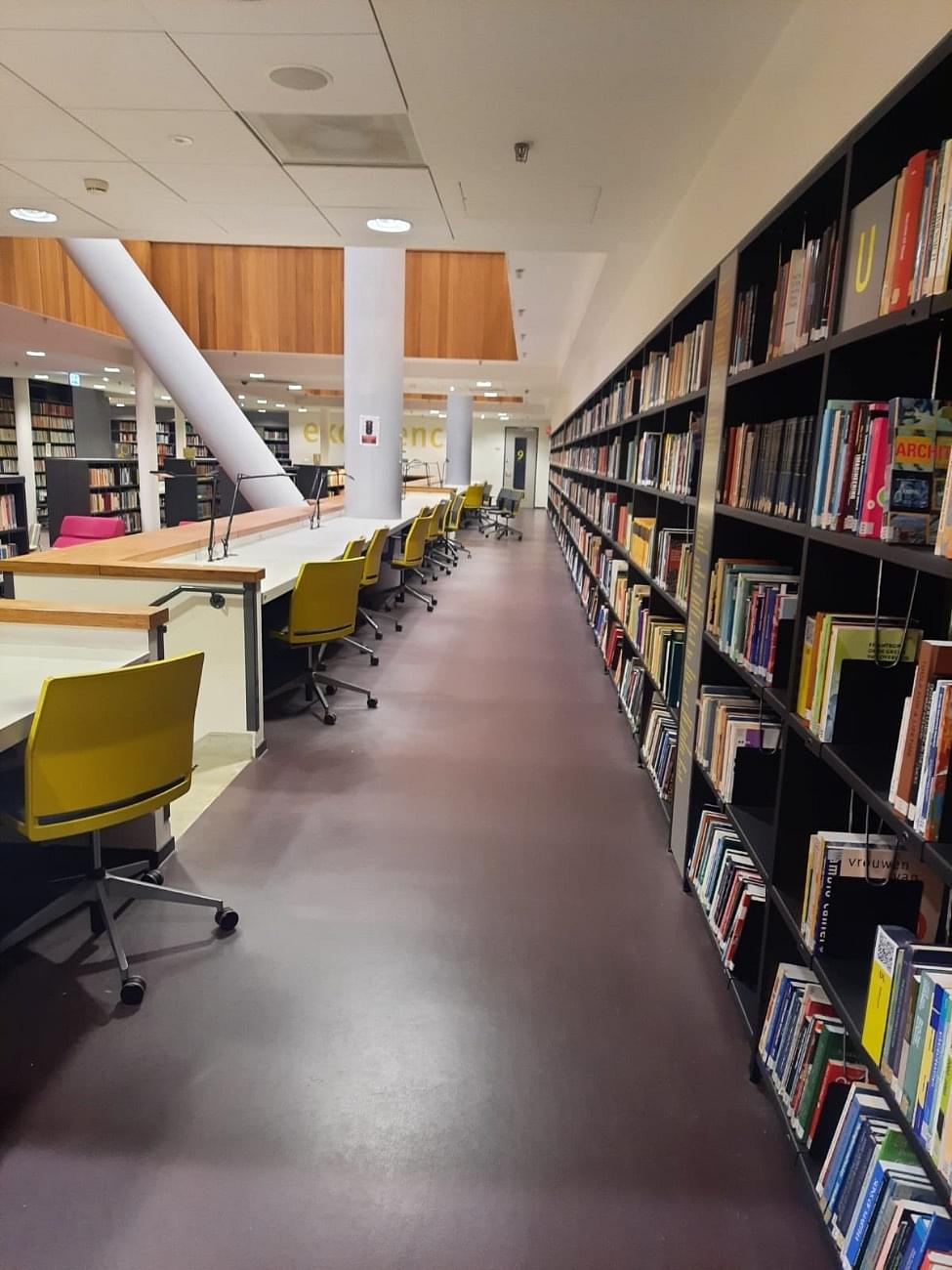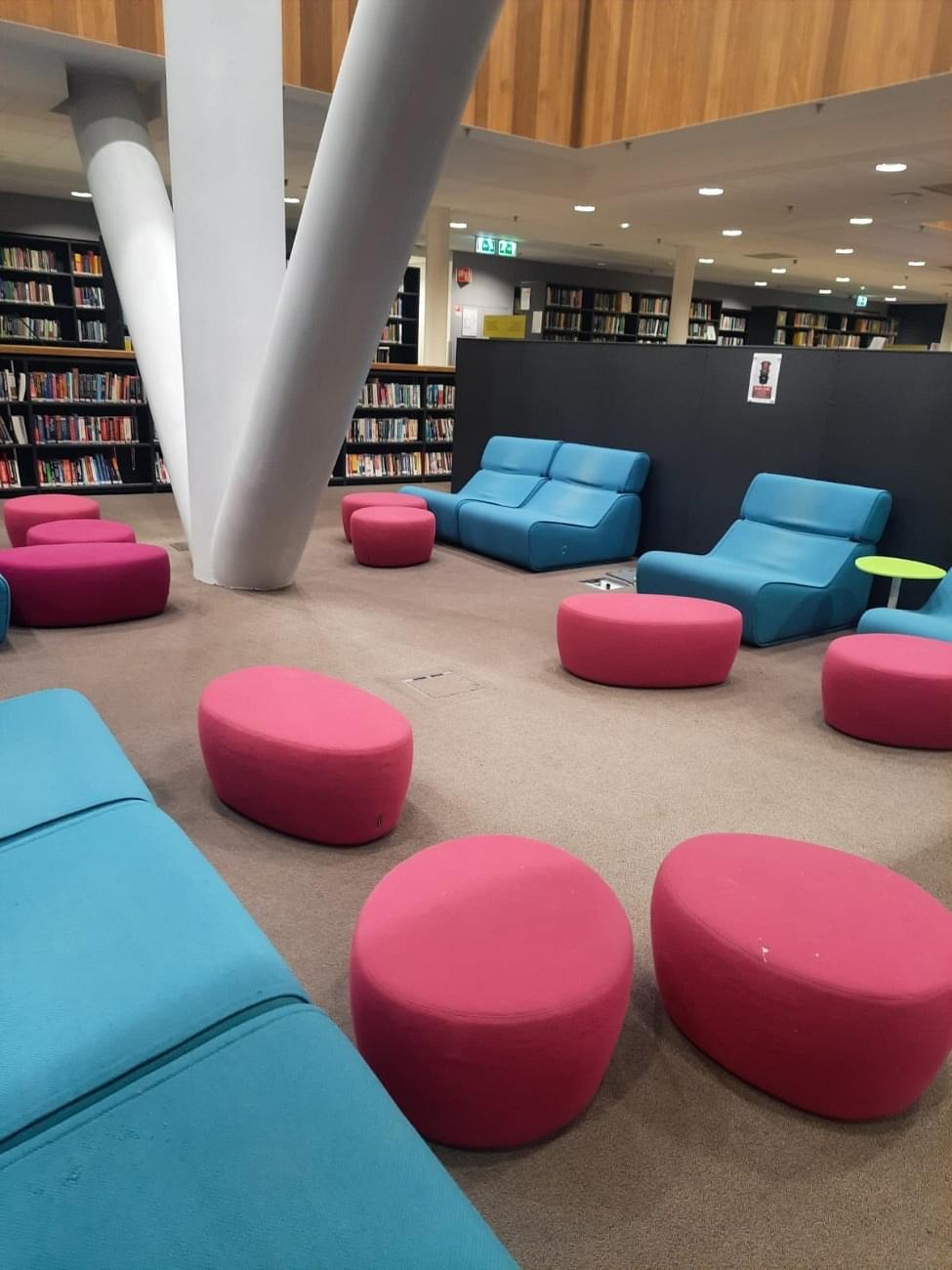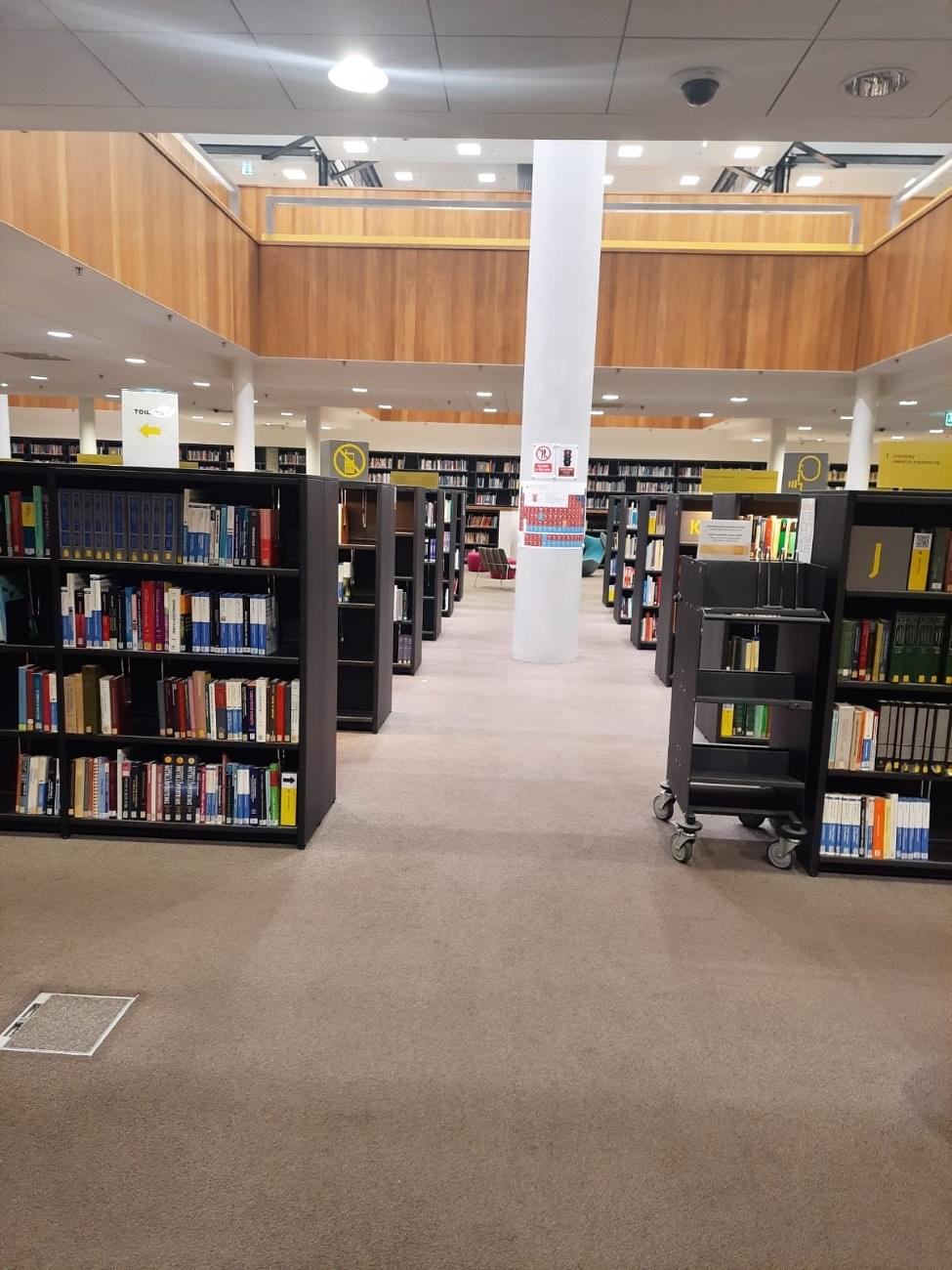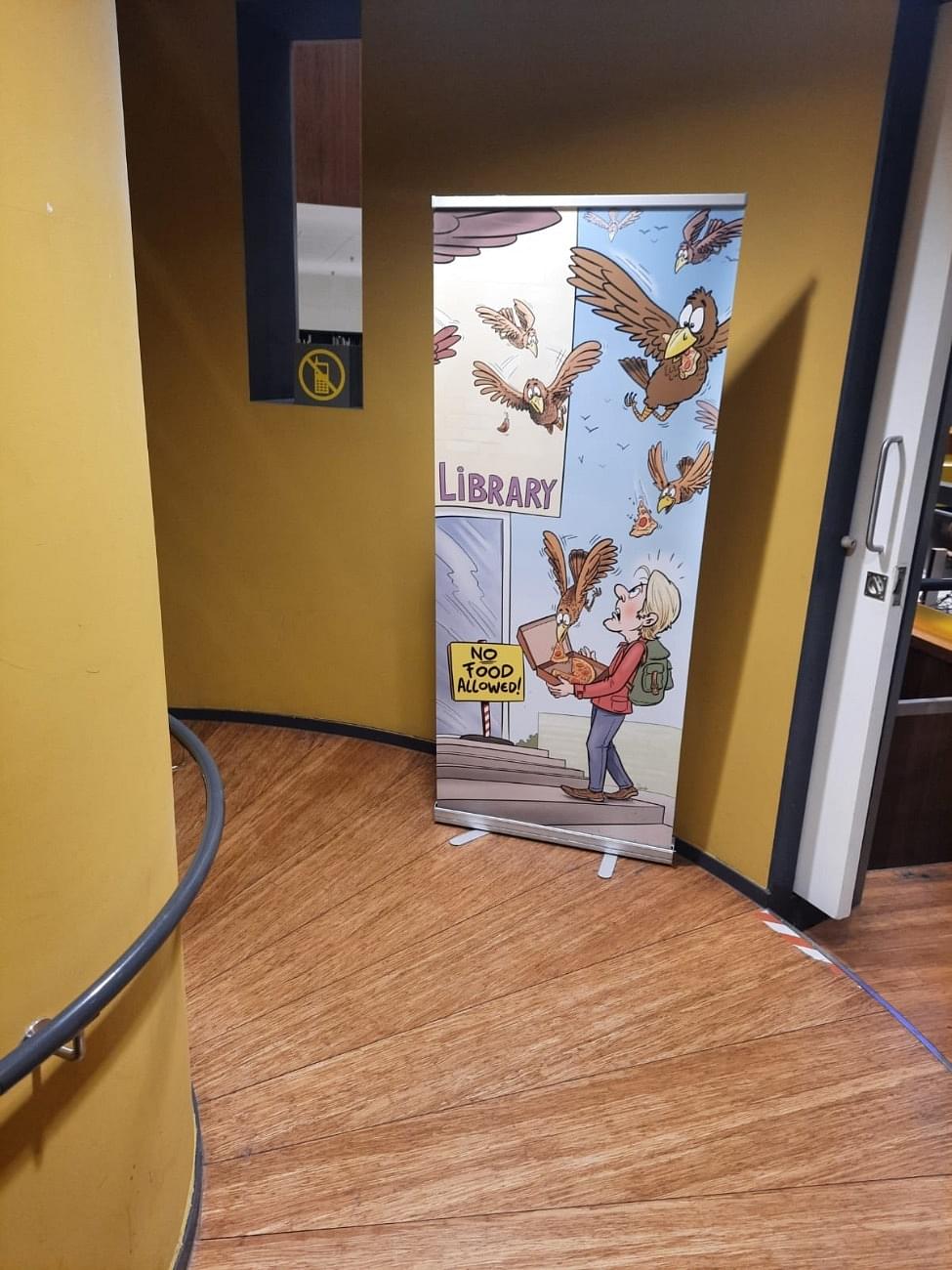What Students Say
Likes
- Hands on approach - Based on the courses that you select, you will also have laboratory experiments/case studies where you can explore all the possibilities to provide a solution. University appreciates genuine solutions and does not always expect you to provide the right solution for those problems.
- Open choice for projects - You will have your own freedom for choosing the projects for courses/internship/thesis. One of the important things in an internship/thesis project is that you will also have the freedom to shape/change your problem statement of the project as you make progress.
- Mentor/Academic advisors - In continuation of the previous point. It is common to get confused in the selection of projects, that's where you have sought the help of academic advisors, who can guide you to the right person and offer support in case you are having some academic performance issues. Choosing a professor mentor in the field that you would like to work is an added plus. He/She will be able to make arrangements for any projects with industry people/university candidates. University makes sure you have both the connection within the first two months of your academic year.
Dislikes
- Too much self study - Sometimes it feels like you have to handle many things and bot on your own for so much during the initial days. The university doesn't give you time to adapt to their educational style and will demand more.
- Scheduling - There are many things that can alter the regular flow of the course schedule, like frequent train issues, protests, and hacking. These events mostly will bother your regular schedule and rescheduling will kind of be a mess.
- Teamwork - There are also some effects due to the above point in case if you do have a course related to teamwork/group projects. In some cases the train strikes will cause your teammates to be unable to travel so you'll have to do their work, although if they are present via Teams. Group project demands contribution from each person and proper workload is not divided, it can also cause unnecessary stress and the university does not help much in this case.
Course Curriculum
- Course curriculum – It is finely balanced in terms of theory and practice as well. There is also a catch, like it depends on the course/subjects that you choose in the first year. Sometimes it might be entirely practically orientated or theory orientated.
- Courses make you well equipped with the basic knowledge for you to approach the industry problem. So you don't need to worry much while entering into the work life.
- Usually it depends on the number of courses that you enrol yourself in per quartile. Most people will choose 2–3 courses per quartile. So the class timing would be varying, like from 8:45 to 12:30 PM or from 1:30 until 5:15 PM for 3 to 4 days max per week. It is also not mandatory for you to attend class in person. Some courses have recorded videos so that you can watch the lectures at your convenience.
- The average number of students is not something to be predicted and giving an estimated answer is really difficult since it varies based on the course. Let's say, like, you will have the option to select 1 out of 4 courses.
- Maybe 8 students would have enrolled for my master's programme. Also for each course, it would be like 1 or 2.
Admission Experience
- I have applied to the following universities: TU Munich – Rejected, SRH – Admitted, TU Ingolstadt – Rejected, TU Hamburg – Rejected, TU Eindhoven – Accepted.
- I have received an Accepted email from TUe and from SRH Heidelberg.
- Most of the German universities rejected my application due to the absence of an APS certificate and also based on the CGPA order/limited seats for English-speaking courses for non-EU students.
- Factors – The specialisation track has a good reflection on my area and also the university/country has made English mandatory as a basic thing.
- Admission process - Generally dutch universities follow a simple online step (Studielink) where you can apply as an initial step. Following that, you don't need to worry too much since the university will guide you through emails, like application status in terms of the internal committee (the department that you are applying to) and the international committee (the uni's general group to check the requirements match). It took me 4 weeks to receive my acceptance email after applying.
- Min CGPA - 8. even if CGPa is less and if you have work experience, it is still an added bonus. Even if your CGPA is lower and you have no work experience, you can still apply but uni requires some additional documents. IELTS – min 6 (overall).
- The overall admission process was smooth you have to pay some fees at certain processes, but it is worth it and they guide you throughout the onboarding process.
- There is no summer/winter/fall in here; it is just a one-time season-application scheme from Jan to May.
- The acceptance email took 4 weeks and the remaining process, like the fees, was issued in the month of May. I have paid the fees before the 1st week of June. So the visa and RP process took an additional 2 weeks and then the visa interview was done in another 2 weeks. In summary, the actual process begins in May and will end in July. Some additional things may occur in August.
Faculty
- During lecture hours there would be one lecturer (professor) accompanied by TAs (Teaching assistants) to whom you can ask queries during the lecture time as well as during the break time. So it is pretty much a well-maintained ratio. The university also ensures that there are a certain number of seats for a course.
- The teaching methodology is pretty much solid and it creates a curiosity to explore in your interested field. This inspiration makes you make some new connections with industry persons to whom you can approach for intern/thesis/job opportunities.
- Faculty members do have connections in the related field so you can seek their help for part-time/full-time job opportunities. Like I said previously, try to find a mentor from your domain so it would be easy during this stage.
- Each faculty member is unique and they are well equipped in their domains. So it is kind of obvious that each and every professor inspires.
Campus Life
- It is just one campus spread over a large area with different buildings which hold history from a long time ago. Renovated buildings are far more advanced technologically than the old ones. The campus is located at the centre of Eindhoven, like, right next to the bus and train station of Eindhoven.
- All the facilities are available within the university campus, with some additional accommodation buildings within the campus. You are lucky if you do get accommodation with the uni's campus.
- Intro week is the major festival that happens for the freshers during September, which is quite big due to the large number of students and volunteers. Other than that, there are always a quite a number of club events, association events and frequent dutch parties on Thursdays.
- There are student organisations like automotive (URE, inmotion), drone, satellite, computer science (viper) etc.
Part Time Jobs
- It depends on the vacancy/requirement of the post, like TA – 2 students max.
- Depends on the age; like, if you are 21+, you will be paid more than 17 eur per hr
- Like any jobs related to associations/committees.
- 16 hours per week for Non EU students
- It is kind of not too easy and takes some time. Also depends whether the contractor provides the work permit.
- Depends on the age; like, if you are 21+, you will be paid more than 17 eur per hr. It is kind of not too easy and takes some time. Also depends whether the contractor provides the work permit. Just like the question is asked, the procedures are same and getting a work permit is an additional thing. Also mind that you will not be able to apply for a work permit; the employer should apply for it.
Placement
- The university doesn't provide you placements like typically in India. It is entirely different; they do organise some events for three days during March where you can introduce yourself to companies (around 200) that you like and can ask about the opportunities.
- Students usually get their jobs through connections, linkedin, Glassdoor. The average salary for a controls engineer with a master's degree is 3K ~ 4K per month. Some people also get their jobs through consultancies.
Accommodation
- I did try to find rooms using popular dutch platforms like H2S, friendly housing, facebook but i was unfortunate with these platforms. Finally i got my room through a lottery draw from the university itself. The university will ask if you would like to participate in the housing lottery (it doesn't mean you will get a house for sure).
- I do pay 650 EUr per month, where i do share a kitchen and bathroom with 8 other students. The rooms are for one student, which is like 20 m². The general housing would provide water, gas and internet. Since my room was furnished, i didn't have to buy a bed, table, chairs, etc.
- To be frank, getting accommodation in the Netherlands is complicated. The dutch law doesn't allow more students to stay in a single house. So typically, there are no special treatments for international students and even the university implies the housing crisis right from the date of your acceptance email.
- Try to find some indian groups through Facebook or whatsapp (but to be frank, even indians charge a hefty amount for rent, taking advantage of the situation). So pay for some premium services for the common housing platforms and you will be lucky. Try to reach out to fellow students on LinkedIn and do not get scammed by Facebook ads.
- My accommodation is 15 mins away by bike ride (cycle) from the university. For the rest of the question, it is not known to my knowledge since everyone lives under different roofs.
Exams
- IELTS.
- The documents are a little bit tricky since you need to submit proof of cover from banks in incase you are admitted to the uni and the bank will pay the tuition fees. Most banks in India do not provide them since if you do have an acceptance email, they will provide you, but in the case of the application process, they do ask you to submit a letter (complicated) and then regular docs like transcripts, LOR, motivation letter, degree certificate, and extra (work exp).
- Interview was not a part of the application process.
Fees
- Per year Tuition fees (vary) are 19,700 EUR, and Accommodation & other expenses (monthly) - 850 EUR. The accommodation fees can vary, but due to the scarcity of houses, they are more of the same price.
- Fees can be paid for a split of 10 months, per quartile (2 months) or all at once. It depends on which mode you want to pay. Be aware of the tax and conversion charges since it will also alter the total sum that you will pay.
- Expense (month) Rent – 650 EUR, food – 100 EUR, bike – 10 EUR, additional expense – remaining amount (insurance, recharge).
Scholarship
- There are scholarships available, like the ALSP (5000 EUR per year) and the Holland scholarship (5000 EUR) per year.
- I was not selected for the scholarship. For non-EU people, we have to apply for admission before the month of February so that you will automatically be included in the eligibility list.
- My batchmates didn't receive any scholarships, so it is quite a demand to get one too.
- I am unaware of the average details and further info.








